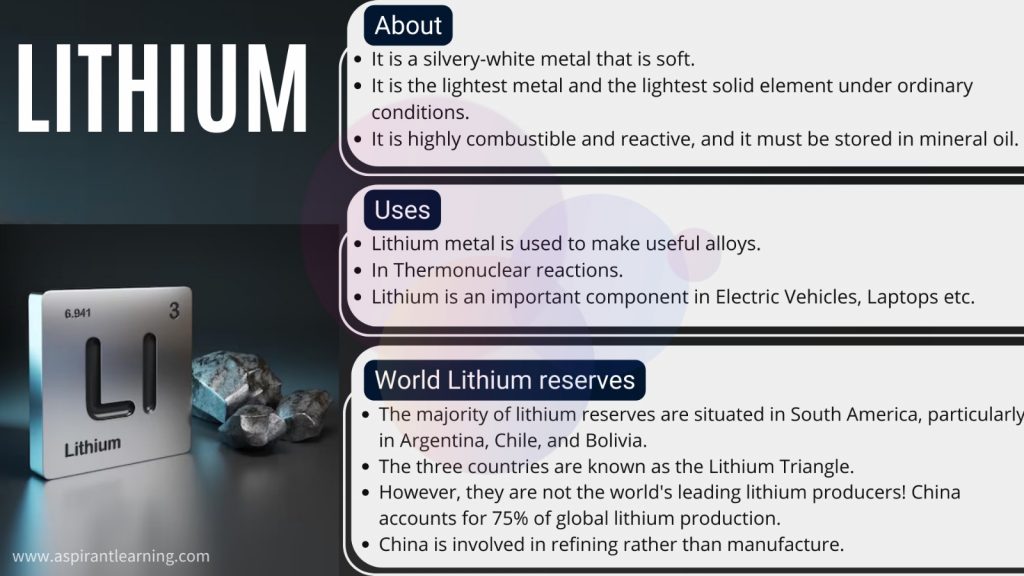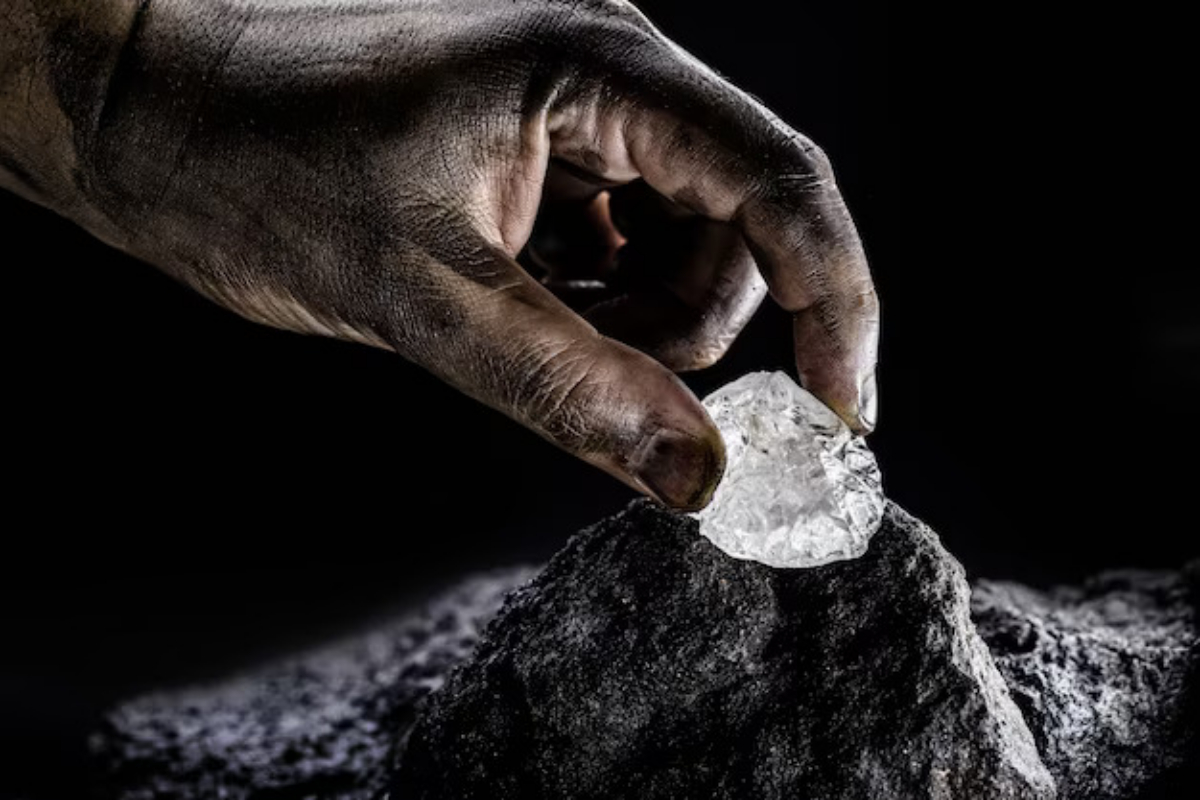News Highlight
Discovery of lithium deposits: the find will boost the manufacture of rechargeable batteries for smartphones, laptops and electric cars in the country.
Key Takeaway
- The discovery of 5.9 tonnes of lithium resources in Jammu and Kashmir, a first for India, would cut the country’s reliance on imports and increase job prospects.
- The discovery has also boosted the production of rechargeable batteries for cell phones, laptops, and electric vehicles.
- In addition, the lithium-inferred resources have been established in the Reasi district.
- The existence of bauxite in composite form, as well as the presence of lithium during processing, was discovered.
Lithium
- Properties
- Firstly, it is a soft, silvery-white metal.
- It is the lightest metal and the lightest solid element under ordinary conditions.
- It is highly combustible and reactive and must be stored in mineral oil.
- It is an alkali metal that is also a rare metal.
Significance of Lithium in India
- Electric mobility
- Firstly, faster Uptake and Manufacturing of Electric Cars in India has accelerated the adoption of e-mobility vehicles.
- By 2030, roughly three-fourths of Indian two-wheelers and all new automobiles are expected to be EVs, with lithium-ion batteries powering most of them in the short term.
- Energy security
- The Central Electricity Authority estimates that the country will require 27 GW of grid-scale battery energy storage installations by 2030.
- However, vast amounts of lithium will be required.
- Climate change mitigation
- Lithium-ion batteries, for example, are expected to play an important role in India’s ambition to cut its carbon footprint by 33-35% from 2005 levels by 2030 as part of its climate change mitigation obligations.
- The diplomatic tussle with China
- With India embroiled in a diplomatic spat with China, supplies from the neighbouring country have dwindled, and India is exploring alternative import sources.
Harmful effects of Lithium extraction
- Any sort of resource extraction is detrimental to the environment.
- This is because removing these basic materials can lead to soil degradation, water shortages, biodiversity loss, ecosystem function harm, and an increase in global warming.
- In addition, it will cause increased salinity of rivers, contaminated soil and toxic waste.
Why has the supply of lithium declined?
- The surge in demand
- Lithium supply has not kept up with the spike in demand from electric vehicle manufacturers worldwide.
- The mismatch between demand and supply
- China is likewise experiencing a mismatch between demand and supply, resulting in price increases.
Production of Lithium in India
- Firstly, India relies on lithium imports because the domestic output is insufficient.
- The byproduct, lithium-ion batteries, was imported into India.
- In addition, the first indications of lithium were discovered in the Karnataka region of Mandya.
- The initial discovery is minor, with only roughly 1,600 tonnes of lithium deposits.
Issues and Challenges faced by India
- India’s high import dependence
- Almost all EVs in the country are powered by imported batteries, most of which are from China.
- According to the Union’s science and technology ministry, the amount of foreign currency spent on importing lithium batteries increased between 2016 and 2019.
- Essentially, India is facing a new type of energy reliance.
- Negligible lithium resource base In India
- Chile, Australia, Argentina, Bolivia, and China have explored almost all the lithium reserves globally.
- Geo-political rivalry with China
- Today, the four most prominent mining companies control 77% of the global lithium market.
- This has sparked an arms race between India and China.
- China is believed to have huge lithium reserves and has secured many lithium mines in multiple countries to ensure consistent sources of supply for both lithium and cobalt.
- As a result, a hostile neighbour may quickly disrupt India’s drive for energy security.

Way Forward
- Firstly, China controls the lithium-ion cell manufacturing space, so India can take various actions to avoid repeating what happened with solar equipment production.
- In addition, aluminium-based battery technology shows significant promise in terms of resources.
- India has vast bauxite reserves, allowing it to obtain aluminium at a low cost.
- Furthermore, as this technology matures economically, it will reduce India’s reliance on worldwide imports.
- India should also try to intensify exploration and exploit the opportunity to re-purpose and recycle used lithium-ion batteries.
Pic Courtesy: India.com
Content Source: The Hindu



